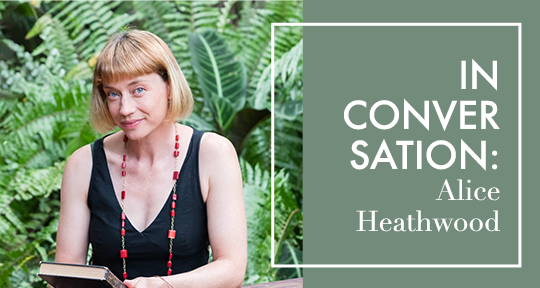Asymptote’s most recent Spring Issue includes an excerpt from Alice Heathwood’s translation of Jean-François Beauchemin’s idiosyncratic and playful Le jour des corneilles (translated as The Day of Crows). The novel plays with language and voice, creating a sense of whimsy that counterbalances the darkness of the story. In this interview, Tyler Candelora talks to Alice Heathwood about translating Beauchemin, the tension between translating the reading experience one had and leaving open the possibility of other readings, and inventing words.
Tyler Candelora (TC): Can you tell me what led you to Jean-François Beauchemin’s work, and why you decided to translate this story in particular?
Alice Heathwood (AH): I came across Le jour des corneilles many years ago. I was going through a period where I was craving fiction, but just couldn’t find the right book for me. It had been ages since I’d fallen in love with a novel, and I missed that immersion in another world that you get from really good stories. I asked a friend who worked in a bookstore for a recommendation and she handed me Le jour des corneilles. It sucked me in completely from the first line. The language is so lyrical, so striking, so odd yet so inviting. Fortunately, my friend had told me nothing of the plot, which is dark, and would be difficult to handle if not wrapped in the book’s particular prose, or I may never have read it. But it is exactly that juxtaposition of light and dark that makes the book so compelling. It was my first taste of Beauchemin’s work and a strange sort of introduction, as his other works, while very poetic, do not play with language in this very idiosyncratic way. Of course, being so struck by the prose, I couldn’t help wondering how it could be translated: occupational hazard. But for years I dismissed the idea as crazy, until eventually, I just could not resist the challenge. It was as if the book wouldn’t leave me alone.
TC: Do you typically translate from Quebecois French, or was this a new venture for you?
AH: Being based in Paris, I normally translate from the French of mainland France. I wouldn’t necessarily take on any book from another culture, but the book’s unique style places it, in some ways, outside of its particular literary context. At the same time, I want to be careful not to brush that context entirely aside. I’m aware of the dangers inherent in translating a work from a culture in which I am not immersed. However, I think there are ways to mitigate our blind spots and approach the work with respect and a willingness to learn. In practical terms, this means reading more Quebecois literature, listening to podcasts, watching films from Quebec and talking to fellow translators and the author himself. Recently, I participated in a week-long event with other literary translators at the International College of Literary Translators in Arles, France (the ateliers ViceVersa, run by the French association for the promotion of literary translation, ATLAS and brilliantly facilitated this year by Mona de Pracontal and Ros Schwartz). We each brought along an extract of our work to workshop with the others. It was a wonderful, enriching experience. One colleague in particular, Arielle Aaronson, who lives and works in Montreal, really helped me rethink my approach. I think it’s great to collaborate with other translators. In my experience we are always willing to help each other out. READ MORE…

